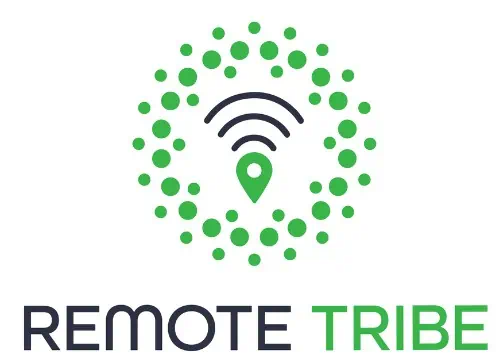Registering an LLC as a non-US resident and non US Citizen
Since the COVID-19 pandemic, more individuals have left corporate jobs to work on their own terms as freelancers, start own companies, or just get a remote job as a digital nomad and travel the world.
As a result, a lot of people go through a process of questioning whether they sell their skills or products as a sole trader or through a company. On top of that, taxes are very important because entrepreneurs are usually bootstrapped and they want to pay as little as possible.
But where should you, or anyone else considering it, establish a new company? Most people will look at well-known offshore financial centers like the Cayman Islands or the British Virgin Islands. While both are viable choices, they are costly, have stringent regulatory compliance requirements, and require service providers to expose consumers to unnecessarily burdensome due diligence.
The US LLC is an often-overlooked option and could be an ideal solution for entrepreneurs at the beginning of their journey; its profits and costs are passed directly to the owner. For US tax purposes, the LLC does not exist. When a nonresident of the United States conducts services through a US LLC, it is treated as if that person performed those services directly and received the related revenue.
Table of Contents
A. What is an LLC
LLC stands for Limited Liability Company, and it is a sort of corporate entity that protects its owners (known as members) from liabilities. This means that an LLC’s members are normally not individually liable for the firm’s debts or legal responsibilities in excess of their investment in the company. The great news in 2023 is that you can now open an LLC as a non reisdent in the USA.
Because they combine the freedom of a partnership or sole proprietorship with the liability protection of a corporation, LLCs are a popular choice for small businesses and startups. Furthermore, LLCs benefit from pass-through taxes, which means that the company’s revenues and losses are distributed to the members and reported on their personal income tax returns, avoiding the double taxation that corporations suffer.
The management and ownership structure of an LLC are flexible and may be tailored to the individual needs of the firm and its members. In addition, compared to other business forms, LLCs are extremely simple and affordable to establish.
B. Benefits of opening an LLC in the USA
Creating a Limited Liability Company (LLC) in the United States has various advantages that make it an appealing alternative for entrepreneurs and small business owners, now even for non-US residents.
Finally, LLCs offer more funding options than sole proprietorships or partnerships. They can sell ownership shares to investors to raise cash and develop the firm.
These are just a handful of the advantages of founding an LLC in the United States. It is crucial to remember, however, that the benefits and drawbacks of creating an LLC differ by state and business. It is critical to contact with a legal or financial specialist to evaluate whether creating an LLC is the best solution for your company. You can make an informed decision on the optimal legal structure for your business by analysing the advantages and downsides and seeking expert assistance.
For example, personal asset protection is one of the most significant benefits of creating an LLC. Owners or members of an LLC are not individually accountable for the company’s debts or legal responsibilities, even as a non-resident. In other words, if the LLC is sued, creditors cannot seize the owners’ or members’ personal assets to settle any obligations or legal judgments.

Another advantage of creating an LLC is the tax flexibility. By default, LLCs are pass-through businesses, which means that the company’s revenues and losses are passed through to the owners’ individual tax returns. This form eliminates the double taxation that C companies are subject to. However, LLCs have the option of being taxed like corporations, which provides extra tax planning alternatives.
LLCs are a good alternative for small business owners since they are simple and flexible to run. There are no formal corporate requirements or formalities such as a board of directors, annual meetings, or minutes. Instead, LLCs have the option of managing their firm through a member-managed or manager-managed structure.
Opening an LLC might also help your firm gain trust with consumers, vendors, and lenders. It denotes that the firm is a separate legal entity that is dedicated to its business and has taken the required precautions to safeguard the assets of its shareholders.
Finally, LLCs offer more funding options than sole proprietorships or partnerships. They can sell ownership shares to investors to raise cash and develop the firm.
One important thing to remember when opening an LLC in the USA is that the benefits and drawbacks of creating an LLC differ by state and business. It is critical to consult with a legal or financial specialist (we can help, let’s chat!) to evaluate whether creating an LLC is the best solution for your company. You can make an informed decision on the optimal legal structure for your business by analyzing the advantages and downsides and seeking expert assistance.
Also, choosing the type of company (like an LLC) is dependent on what kind of activity you want to run through this LLC as a non-US resident. Usually, LLCs are ideal for e-commerce businesses and freelancers, so you want to factor that in as well.
C. Why form an LLC in the US
Entrepreneurs and small business owners should consider forming a corporation in a different country because of the solid legal system found there. It might be an appealing option, and that’s for several good reasons.
To begin with, the United States has a robust legal and regulatory structure in place to safeguard companies and investors. The country’s well-established legal and judicial systems enforce contracts and defend intellectual property rights. The regulatory structure is likewise solid and predictable, making corporate planning and operations easier.
Second, the United States boasts one of the world’s largest and most dynamic capital markets, making it simpler for enterprises to raise financing.
And thirdly, it can help those freelancers and digital nomads who aren’t US persons and who are tax residents of a country that doesn’t have income taxes or that offers special tax incentives to digital nomads. They can often set up a company in a no-tax (e.g. Delaware, US) jurisdiction and avoid income taxes on their services income altogether (e.g. if they are registered for personal tax in Paraguay,etc)
Allow us to develop a comprehensive offshore plan tailored to your needs
Our team of experts can assist you in legally minimizing your offshore tax rate, safeguarding your assets, exploring overseas investment opportunities, and obtaining a secondary citizenship. We have already assisted hundreds of individuals in accomplishing these goals.
The basics of LLC formation
The ideal type of LLC for a certain firm is determined by a number of factors, including the number of owners, the management structure, and the tax consequences. It is critical to speak with a skilled attorney or accountant to establish the best kind of LLC for your company or to talk to one of the online providers we listed below.
Most likely, you will need the most simple type of LLC which is the first one in the list below.
A. Types of LLCs you can open
Single-Member LLC: This kind of LLC is owned by a single person or corporation and is taxed as a pass-through entity, which means that earnings and losses are recorded on the owner’s personal tax return.
Multi-Member LLC: This type of LLC is owned by two or more persons or firms and pays taxes as a pass-through entity.
A Series LLC is a type of LLC that lets the formation of distinct “series” inside the LLC, each with its own assets, liabilities, and members. For accountability and tax purposes, each series is regarded as a separate entity.
Manager-Managed LLC: The day-to-day activities of a Manager-Managed LLC are managed by one or more appointed managers who are responsible for making business decisions. The members of the LLC function as passive investors and do not participate in the company’s management.
Member-Managed LLC: In a Member-Managed LLC, all members have an equal say in business management and participate in decision-making.
Low-Profit LLC (L3C): An L3C is a sort of LLC that is intended for social enterprises that works primarily to achieve a philanthropic or educational goal. Private foundations can make program-related investments in L3Cs, which are investments that help the foundation’s philanthropic goals.
Series of LLCs: A series of LLCs is a type of LLC that is formed by creating multiple individual LLCs, each of which operates as a separate entity. The LLCs are typically created to hold different assets or engage in different business activities.
B. Choosing a state to form your LLC - IMPORTANT!
In general, if you are a US citizen or resident, you should generally plan to form your LLC in the state where you live and do business. This is particularly true if your LLC will have an office or storefront in a state. However, because we are talking about non-US citizens and residents in this article and we only care about this case, your business will probably be generating revenue from all over the country and beyond, such as from online businesses, traveling consultants and service providers, and so on, should therefore consider the tax, filing, compliance, and other factors when choosing the state where you want your agent to register your LLCs. Some of the more common states to register are:
Delaware – It continues to be the most popular option for entrepreneurs starting a new LLC. It is a business-friendly state with some notable pluses. To start with, Delaware’s initial and annual filing fees are low compared to many other states. In addition, Delaware does not tax out-of-state income, meaning that if you form your LLC in Delaware but do a significant amount of business elsewhere, Delaware will not tax those earnings at the state level. If you intend to raise investment funds, then that’s another very good reason to consider Delaware for your LLC as a non-resident. Delaware is still regarded as a corporate business haven, and many potential investors will need you to form your LLC there.
Nevada and Wyoming – In recent years, Nevada and Wyoming have been gaining popularity as pro-business states. Neither state charges business income or franchise taxes, though both have small annual filing fees. In addition, their LLC formation costs are relatively low, and their processing times are very fast (Wyoming processes the filing immediately).
C. Deciding on a business name and appointing a registered agent
Your company name that you want to register in the USA as an LLC should be unique so have a good think about how you want to name your company. Once you checked the name is available
A registered agent is a person or company that is designated to receive legal correspondence on behalf of the company—such as an LLC—and relay important messages to the owner in a timely manner. This includes government, tax and legal correspondence.
We’ve listed the best rated and most popular registered agents you can find online. They have plenty of expertise with non US citizens opening up LLCs so you will be in good hands.
Already decided to open an LLC?
Great. You can find below the top services that will open up an LLC in the US for you even though your are not a resident. No hustle, do everything online. Check out the most popular online services, with great reviews, used already by thousands of people to open their LLC in the US.

Zen Business
With a great score on trustpilot, Zen Business can open up different business entities for you, from LLC to C-Corps.

Tailor Brands
Tailor Brands provides all the tools you need to turn your idea into a real business. First, use our AI logo maker to design a logo that perfectly matches your brand. Then, take your vision to the next level and build a beautiful website. Once that’s done, you can create digital business cards and print branded merch. And when you’re ready, you can form an LLC in a few clicks.

Inc File
With Inc File you’ll pay a state fee to file your business, but no charge or any processing fees on top of it. Formation through Incfile is always free, and you can choose to add on additional services with the Premium Packages.

Doola
A new fintech on the market and backed by Y Combinator, Doola is a fast & easy US business formation service. They will form your company, get your EIN, and help you open your business bank account. Get your LLC started in any of the 50 states, including Wyoming or Delaware.

Northwest
Northwest is one of the oldest registered agents on the market. With them, you obtain an EIN number, trademark services, and annual report filings. The services are more expensive than those of the other providers above, but they are an experienced company that offers lots of different other services related to LLC formation that you might find very useful.
Steps for forming an LLC as a non-resident
The companies above will obtain all the items below for you if you choose the right package while talking to them. Just make sure you ask about what’s included in the offer and go through the contract. You can top up the basic package with some extras, like accounting services, tax fillings and so on.
A. Choose the name for you LLC
Now that you’ve decided to create an LLC (definition), it’s time to give your dream a name, and it must be distinctive. You must use a name that is unique from any existing limited liability corporation in your state when naming your LLC.
The standards governing how distinct your LLC’s name must be from others vary by state. Although adjusting up the punctuation or converting a word from single to plural might occasionally suffice, it’s typically an easier procedure when the names are more distinct. The addition of “limited liability company” or an abbreviation of it at the end of the business name, on the other hand, is always necessary.
Acceptable abbreviations differ by state.
To get an LLC with a unique name, it is critical to conduct research to see whether your ideal business name is accessible. Google and social media are both useful, but you should also conduct a company database search on your Secretary of State’s website.
Your LLC name must be distinct from existing LLC names and cannot be previously trademarked. You should be aware of two types of trademarks: federal and state. Search the United States Patent and Trademark Office (USPTO) for your company’s name or logo to ensure it hasn’t already been legally trademarked.
B. Choose a registered agent
A registered agent serves as a liaison between a Limited Liability Company and the state in which it is registered. This third-party individual or corporate entity serves as the business’s point of contact and receives tax forms and legal papers, government communication, and litigation notices.
You can be your own registered agent as long as you have an actual street address in the state where your Limited Liability Company is incorporated (P.O. boxes are not permitted); but, there are advantages to employing an outside registered agent service, like the ones we listed above.
It gives you more privacy and freedom, and it might reduce the stress that comes with being your own agent. Using a third-party registered agent service, such as onews we mentioned, guarantees that you are in compliance with the law, always protected, and strategically organised.
C. File the certificate of formation
The formal name for the papers filed to register your business is determined by the state in which you file them. The document is often known as the Articles of Organization; however, some nations call it a Certificate of Formation or Certificate of Organization. Whatever you name it, the premise is the same: It is used to establish the LLC’s state recognition and to define the information of its members.
Check your Secretary of State’s website for filing requirements, since they differ by state. You’ll always need basic information about the LLC and its members, such as the LLC’s name and postal address, as well as the name and address of the registered agent.
You may also be asked to describe the LLC’s objective and name any current LLC members and/or management.
A few sections of the form may be new to someone who is just starting out in company. You may be asked if your LLC is run by members or by managers. In a member-managed LLC, the members oversee day-to-day operations and decide who is responsible for what. The members of a manager-managed LLC elect one or more supervisors to be in control.
You must also include the site of operations, which should be the area where members collaborate. If the firm is run from your house, include your home address. If mail is not deliverable to the place of work, make sure to include a USPS-verified mailing address.
D. Get an operating agreement
Although LLC Operating Agreements are not needed in every state, having one is a wise business decision. This legally enforceable agreement defines all ownership conditions, policies, and management choices in plain and straightforward language. An operating agreement protects the personal assets of the owners while also outlining ownership percentages, duties, voting power, and a succession plan in the event that an owner decides to quit the firm.
An operating agreement can help to avoid misinterpretations and manage issues among members. Because it is not required by law to register an LLC operating agreement with the Secretary of State, it is best to keep the agreement safe and secure alongside other relevant documentation once all parties have agreed on the conditions and signed it.
An operating agreement can help to avoid misinterpretations and manage issues among members. Because it is not required by law to register an LLC operating agreement with the Secretary of State, it is best to keep the agreement safe and secure alongside other relevant documentation once all parties have agreed on the conditions and signed it.
Using an operating agreement template can help you have the correct company structure and format for this vital agreement. All the vendors above can help you with the operational agreement as part of the basic package or for a tiny extra.
E. Obtain an EIN number
Following the formation of your LLC, you should consider registering it with the federal government by obtaining an Employer Identification Number (EIN) from the IRS.
If your LLC has numerous partners or workers, you will need an EIN, which is the commercial counterpart of a personal Social Security number. Applying for a Federal Tax ID Number, also known as an EIN (Employer Identification Number), is completely free and may be done on the IRS website. When completed online, the EIN is issued instantly.
Can and should a freelancer open an LLC as a non-US resident and citizen?
The US LLC is definitely one of the best options for freelancers and digital nomads when deciding where to set up their company. One must then look to where the services were performed to determine their source. If the services were performed outside the US, they’re not considered US source income and aren’t subject to US income taxes. A nonresident who performs services from outside the US through a US single-member LLC won’t be liable for US income taxes, even if the income was received from US clients. This is very powerful because the US LLCs offer all the same advantages as traditional offshore companies.
However, when it comes to personal tax, the owner of the company will have to pay taxes when they withdraw the dividends or salary according to the place where they are registered as a tax payer (tax residency).
Another great news is that with an LLC, one gets the legitimacy of a US company without the complicated regulatory compliance requirements or cumbersome due diligence of service providers.
Challenges for non-residents forming an LLC
A. Difficulty in obtaining a bank account
A few years back it was quite hard to open up a business bank account for your LLC in the US as a non resident. Generally, you had to travel to the US (to the state where you formed an LLC) and open a bank account in person.
But not anymore! It has gotten much easier now with the help of fintech and companies like Mercury. Companies like this fixed the in person issue and worked very well for and with online entrepreneurs. You can now open a bank account with them without traveling to the US, and they even let you use the address of your Registered Agent (mentioned above) for your LLC’s office address.
So the combination of a good registered agent and a fintech service like Mercury is a winning one for any entrepreneur that has an online business and wants a low tax LLC in the US.
B. Understanding US tax laws
C. Maintaining compliance with state laws
Recap of the benefits of forming an LLC as a non-resident and last thoughts
Disclaimer: Nothing on this page should be interpreted as legal or tax advice. Rules and regulations vary by location. They also change over time and are specific to your situation. Furthermore, this comment section is provided so people can share their thoughts and experiences. Please consult a licensed professional if you have legal or tax questions.










[…] to move their residency there. However, it can be really complicated to navigate your personal and company tax situations, so we strongly recommend you consult a tax expert or international […]
[…] investments in infrastructure, tourism, and technology, making them appealing to both investors and company owners. The cities have world-class airports, elegant hotels, and cutting-edge technology, making them […]